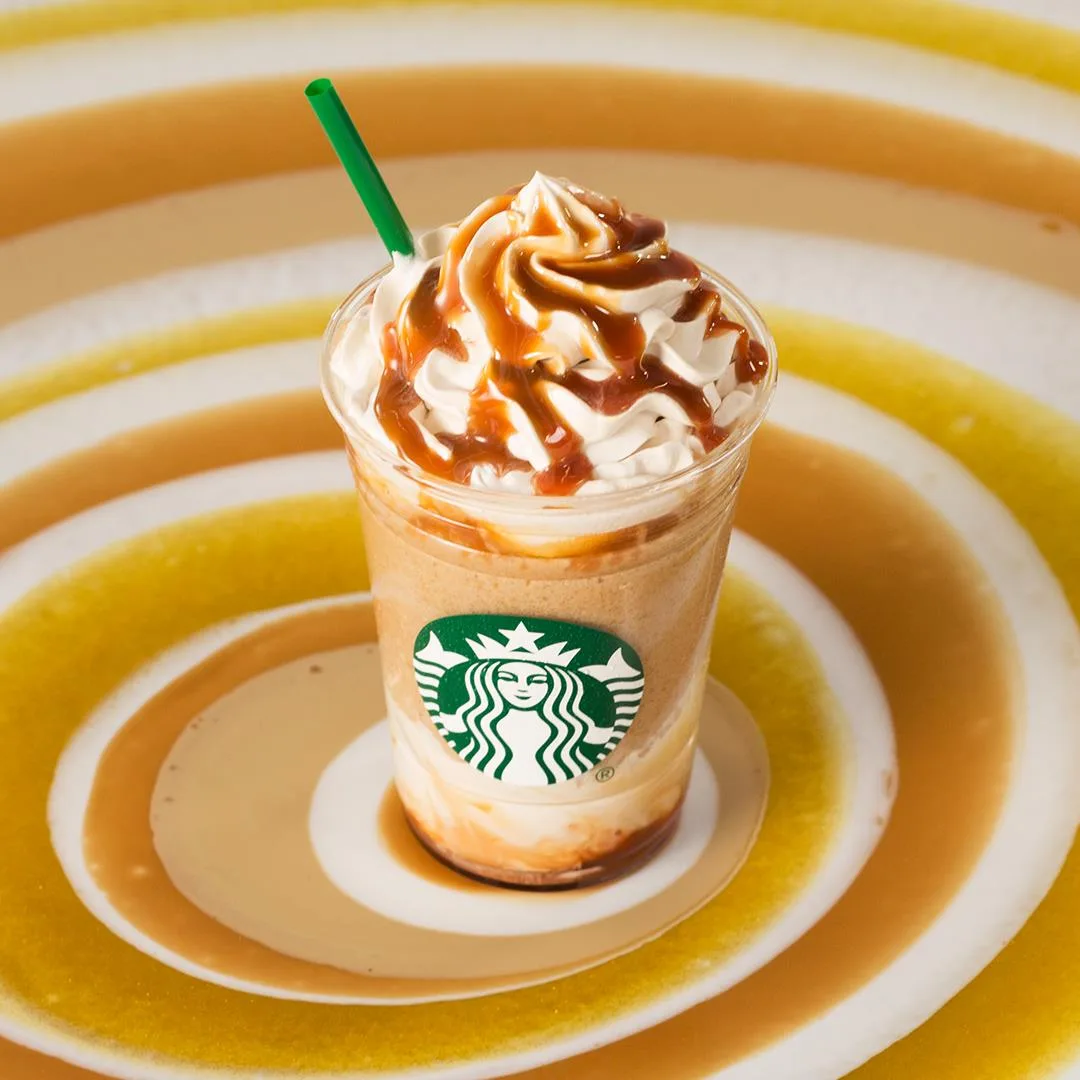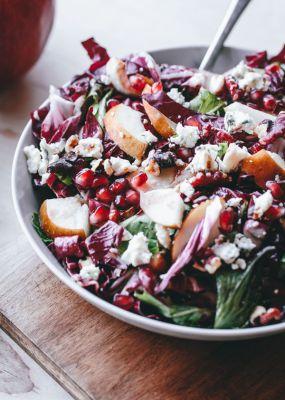Starbucks is one of the best-known brands in the world when it comes to coffee and coffee-based beverages. With over 34 000 stores worldwide and roughly 4 million beverages being sold on a daily basis, there’s no doubt about the chain’s popularity. Yet, as tasty as their wide range of drinks is (who doesn’t love a Caramel Frappuccino), they are packed with fats, sugars, and calories. At the rate these items are being bought and consumed, they should ring warning bells when it comes to living your healthiest life.
Nutritional Value
Statistically speaking, the most consumed drinks from Starbucks are:
- Caramel Frappuccino
- Iced Brown Sugar Oatmilk Shaken Espresso
- Iced Caramel Macchiato
- Ice Matcha Latté
- Iced Caramel Brulée Latté
What’s in your favorite beverage?
We give you a breakdown of the nutritional value of these go-to drinks in the Grande size, the go-to size, to give you an idea of what exactly you’re putting into your body.
| Beverage | Calories | Sugar | Carbohydrates | Caffeine | Protein | Fat |
| Caramel Frappuccino | 380 | 54g | 55g | 90 mg | 4g | 16g |
| Iced Brown Sugar Oatmilk Shaken Espresso | 120 | 12g | 22g | 255 mg | 2g | 3g |
| Iced Caramel Macchiato | 250 | 34g | 37g | 150 mg | 10g | 7g |
| Iced Matcha Latte | 200 | 28g | 29g | 80 mg | 9g | 5g |
| Iced Caramel Brulee Latte | 400 | 44g | 56g | 150 mg | 8g | 16g |
(Nutritional information obtained from starbucks.com)
Nutritional Value for Add-ons
| Add-ons | Calories | Sugar | Carbohydrates | Protein | Fat |
| Whipped Cream | 115 | 2g | 3g | 0g | 11g |
| Flavored Syrup | 20 calories per pump | 5g | 5g | 0g | 0g |
| Matcha Powder | 25 calories per scoop | 5g | 6g | 0g | 0g |
| Caramel Drizzle | 15 | 2g | 2g | 0g | 0.5g |
(Nutritional information obtained from starbucks.com)
Reasons for High Consumption
Apart from consumer culture, and Starbucks being an experience, we can attribute the high consumption to two health-related factors. These factors are linked to the nutrition of these beverages:
Caffeine Dependence
Do you need a double shot of espresso before properly starting your day? Are you cranky before your morning coffee? If so, you may be dealing with caffeine dependence.
How does it work?
Caffeine acts as a stimulant to the central nervous system and brain. It helps you stay alert, and prevents the onset of tiredness. Although most people opt to get their caffeine fix from coffee, it isn’t the only source. Caffeine can also be found in chocolate, cocoa beans, green tea, and many soft drinks.
Dependence vs Addiction
Caffeine is classified as a dependence rather than an addiction, as it doesn’t enhance dopamine signaling in the brain to the point of activating its reward circuit like other addictive substances.
Similar to any other drug, your body can get used to caffeine and require more of it in order to produce the same effect that it did initially. In fact, a study review found that regular doses of caffeine (between 750 mg – 1200 mg a day) can lead to tolerance, which results in increased consumption, which negatively impacts our health.
Side Effects of Caffeine Dependence
- Constant Anxiety
- Depression
- Chronic Insomnia
- Dehydration
- Cardiovascular Issues
- Irritability
Sugar Addiction
It’s important to note that sugar isn’t all bad. In fact, Dr. Junger, MD, cardiologist and functional medicine doctor says that “sugars are important for cellular life and repair.” The issue arises when we’re consuming too many added sugars.
How much is too much?
According to the American Heart Association (AHA), the maximum amount of added sugars we can consume on a daily basis are:
- Women: 25g / 6 teaspoons
- Men: 37.5g / 9 teaspoons
The average adult in the U.S. consumes an average of 17 teaspoons of sugar a day, which indicates massive overconsumption of sugar.
Sugar is More Addictive Than Illicit Drugs
Cassie Bjork, RD, LD, Founder of Healthy Simple Life, states that sugar can be even more addictive than cocaine. “Sugar activates the opiate receptors in our brain… which leads to compulsive (and addictive) behavior.”
The continuous consumption of sugar reinforces these neuropathways, which leads to the brain being hardwired to crave sugar and build up a tolerance, similar to drugs.
Sugar and the Reward Circuit
Eating sugar has been shown to release dopamine in our bodies. Dopamine is a neurotransmitter that is linked to the “reward circuit” in our brains, which is associated with addictive behavior. This release of dopamine creates a pleasurable “high” that you are inclined to re-experience. This cycle leads to an increase in sugar consumption, which ultimately leads to addiction.
Find out how you can live with less sugar in your diet.
Dangers of High Sugar Consumption
- Weight gain, which links sugar consumption to rising obesity rates
- Increased risk of heart disease, the number one cause of death worldwide
- Increased risk of Type 2 Diabetes and insulin resistance
- Increase in the risk for acne
- Increased risk of cancer
Should you stop drinking Starbucks coffee?
No. We appreciate that life is for living, and Starbucks is extremely fun and convenient for millions. However, if you want to keep your health goals on track, it is important to be mindful of what you are drinking.
Even if you are burning calories in exercise, health is not just about being slim and living on sugar and fat. You can have Starbucks, but understand exactly what you are drinking, so you can manage your choices better.
Guilt-free choices
Here’s how you can make more health-conscious decisions and adjustments to ensure that it is as guilt-free as possible:
- Avoid added sweeteners and other add-ons: As indicated in the tables above, extra sweeteners such as syrups, creams, and drizzles can heavily increase your sugar content by at least 10g. So try omitting these, to enjoy your favorite drink without all the guilt.
- Be cautious of your calorie consumption: It is advised that you opt for tall-sized drinks and stay away from Grande sizes (basically, no more Venti) which will keep your calorie consumption in check.
- Don’t overdo it. Restricting the number of prepared beverages you drink daily will help you manage your calories.
- Consider going simple: Starbucks has a wide range of simple teas, coffees, and espressos which are way healthier options. This allows you to be more selective about what additives are added (you can opt for cinnamon as opposed to sweeteners for some punch) and exactly how much of them you’re having.
References
-
Westwater, M.L., Fletcher, P.C. and Ziauddeen, H., 2016. Sugar addiction: the state of the science. European journal of nutrition, 55(2), pp.55-69.
-
DiNicolantonio, J.J., O’Keefe, J.H. and Wilson, W.L., 2018. Sugar addiction: is it real? A narrative review. British Journal of Sports Medicine, 52(14), pp.910-913.
-
Barcelos, R.P., Lima, F.D., Carvalho, N.R., Bresciani, G. and Royes, L.F., 2020. Caffeine effects on systemic metabolism, oxidative-inflammatory pathways, and exercise performance. Nutrition Research, 80, pp.1-17.






![women [longevity live]](https://longevitylive.com/wp-content/uploads/2020/01/photo-of-women-walking-down-the-street-1116984-100x100.jpg)









